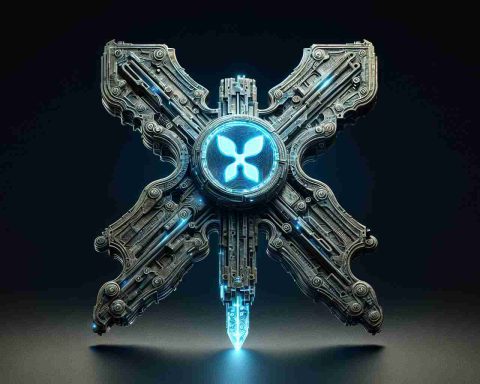The global race for sustainable energy solutions is intensifying, and solid-state batteries are at the forefront of this technological frontier. As the world shifts towards cleaner and more efficient energy sources, Europe is positioning itself as a major player in this burgeoning field. But the question remains: Is Europe truly prepared to take on the competition?
Solid-state batteries offer numerous advantages over traditional lithium-ion batteries, including greater energy density, improved safety, and longer lifespans. This makes them particularly attractive for applications in electric vehicles and renewable energy storage—areas that are crucial to Europe’s green energy transition.
Leading European companies like BMW and Volkswagen are investing heavily in the development and scaling of solid-state battery technology. For instance, Volkswagen has made strategic partnerships with companies such as QuantumScape to accelerate the commercial production of these batteries. Additionally, initiatives under the European Battery Alliance seek to enhance the continent’s capacity in battery production and innovation.
Despite these efforts, Europe faces several challenges. The supply chain for critical minerals needed for battery production, such as cobalt and lithium, is heavily reliant on imports from outside the EU. As a result, Europe must navigate geopolitical challenges and invest in sustainable sourcing and recycling processes to secure its position in the market.
Ultimately, while Europe is making significant strides, continued innovation and strategic partnerships are essential for it to remain competitive. As the race for solid-state battery dominance heats up, Europe’s readiness will be tested in the coming years.
The Growing Importance of Solid-State Batteries in Europe’s Green Energy Transition
As the global demand for sustainable energy solutions accelerates, solid-state batteries are emerging as a pivotal technology in the race toward cleaner energy sources. Europe is actively positioning itself as a key contender in the development of these advanced batteries, integral to its ongoing green energy transition. The ability of Europe to lead in this field may have profound implications on environmental sustainability, the economic landscape, and the future of human energy consumption.
Solid-state batteries offer significant advantages over traditional lithium-ion batteries. They boast a higher energy density, extending the driving range for electric vehicles (EVs), and hold lower risks of overheating or fire, enhancing safety. Additionally, their longer lifespan reduces the environmental impact associated with battery production and disposal. These features make solid-state batteries particularly attractive for applications in electric vehicles and renewable energy storage—both critical areas for reducing carbon emissions and mitigating climate change in Europe.
Environmentally, the shift to solid-state batteries can significantly contribute to reducing Europe’s carbon footprint. By facilitating more efficient and reliable energy storage, solid-state technology supports the broader integration of renewable energy sources, like solar and wind, into the power grid. This could drastically cut down greenhouse gas emissions, a key target in Europe’s ambition to achieve climate neutrality by 2050. Moreover, by improving the performance and adoption of electric vehicles, Europe can address urban pollution and enhance air quality, benefiting both public health and biodiversity.
Economically, Europe stands to gain from becoming a leader in solid-state battery technologies. Investments by leading companies such as BMW and Volkswagen signal potential growth and job creation in the battery and automotive sectors. Initiatives like the European Battery Alliance aim to bolster the continent’s capacity for battery production and innovation, thus decreasing dependence on foreign imports and fortifying Europe’s economic resilience. However, the reliance on imports for critical minerals like cobalt and lithium presents challenges. To mitigate vulnerabilities, Europe must develop strategies for sustainable mining, recycling, and reuse of battery materials.
Looking to the future, solid-state batteries could redefine how humanity consumes and interacts with energy. By enabling more efficient storage solutions, they pave the way for a grid system heavily reliant on renewable sources. This transition supports a sustainable energy infrastructure that can help nations transition away from fossil fuels, securing a cleaner, more stable energy future globally. As Europe continues to innovate and forge strategic partnerships, its success in the solid-state battery domain could catalyze a worldwide shift towards sustainable energy, influencing policies and technologies across continents.
In summary, while Europe faces challenges in the global race for solid-state battery leadership, its progress could have lasting positive impacts on the environment, economy, and future energy sustainability. As such, these efforts are not just about technological advancement but are crucial steps toward a more sustainable and harmonious existence on our planet.
Solid-State Batteries: Europe’s Bold Move in the Energy Revolution
The global pursuit of sustainable energy solutions is reaching new heights, and solid-state batteries stand at the vanguard of this technological advance. As economies worldwide transition towards clean and efficient energy alternatives, Europe is poised to become a significant contender in the solid-state battery landscape. But is the continent truly ready to claim a leading role in this competitive arena?
The Advantages of Solid-State Batteries
Solid-state batteries offer compelling benefits over their traditional lithium-ion counterparts. With superior energy density, enhanced safety measures, and extended lifespan, these batteries are ideally suited for electric vehicles and renewable energy storage—pivotal components of Europe’s green energy transition. Their ability to charge faster and withstand higher temperatures without risk of leakage or fire contributes significantly towards sustainable energy solutions.
European Innovation and Investment Surge
European automakers, notably BMW and Volkswagen, are capitalizing on these advantages by investing in solid-state battery technologies. Volkswagen, for instance, has secured strategic partnerships with innovators like QuantumScape to propel the commercialization of solid-state batteries. Moreover, initiatives such as the European Battery Alliance are bolstering Europe’s infrastructure in battery production and innovation, critical for sustainable economic growth.
Challenges in the Supply Chain
Despite these advancements, Europe confronts critical supply chain challenges. The continent is heavily dependent on external sources for essential minerals like cobalt and lithium. This reliance on imports exposes Europe to geopolitical uncertainties and emphasizes the pressing need for sustainable sourcing and recycling initiatives. Europeans are encouraged to explore recycling and the development of alternative materials as strategies to mitigate these vulnerabilities.
Strategic Partnerships and Global Competition
While Europe is making considerable progress, the road ahead demands ongoing innovation and the formation of strategic alliances. As competition intensifies, Europe must leverage partnerships, both within the EU and globally, to maintain a competitive edge.
In summary, the race for dominance in the solid-state battery industry places Europe in a pivotal position. The continent’s investments and strategic initiatives must continue to evolve to meet market dynamics effectively. Europe’s readiness to lead this energy revolution will be critically examined in the coming years.
For more on Europe’s evolving energy landscape and other technological advancements, visit the official European Union website.












